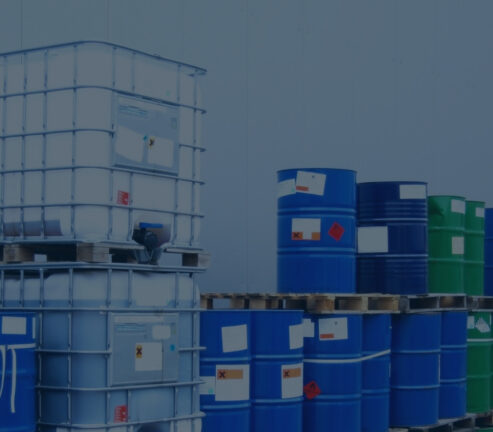Reactive Chemical Hazards

Reactive hazards are a known risk throughout the processing industries. The potential for a runaway reaction during normal operations is typically well studied, with engineering controls in place to prevent adverse outcomes. The true challenge lies in prioritizing the identification of reactive hazards outside of normal operations, as this is a frequently observed shortcoming in incident investigations. Controls and safeguards cannot be identified if the hazard is not recognized, particularly if the hazard is not “covered” from a PSM or RMP regulatory standpoint.
When chemical reactions are not meticulously managed, they can yield detrimental, and in some cases, catastrophic outcomes posing threats to human lives, physical assets, and the environment. AcuTech stands as each company’s partner for comprehensive reviews to identify gaps related to reactive hazards for new or existing products as well as provide considerations for safe handling, storage and transportation of energetic or reactive materials. Connect with AcuTech to explore how our consultants can recommend customized risk reduction strategies to create safer and more efficient operations.
- Process Hazard Analysis (PHAs)
- Process Hazard Analysis (PHA) audits and advisory
- New product or product scale-up reactive hazard safety reviews
- Reactive hazard management program development
- Thermal stability evaluations
- Incident Investigations
- Risk-based combustible dust hazard analyses (DHAs)
- Training
AcuTech’s consultants are well versed in codes and standards developed by industry bodies and will refer to these as well as each client’s local jurisdiction codes and standards. A sampling of the relevant codes and standards can be found below.
- OSHA Hazard Communication Standard, 29 CFR 1900.1200
OSHA Hazardous Materials Table, Special Provisions, Hazardous Materials Communications, Emergency - Response Information, Training Requirements, and Security Plans, 49 CFR Part 172
- New Jersey Toxic Catastrophic Prevention Act (TCPA)
- National Fire Protection Association (NFPA) 400: Hazardous Materials Code
- National Fire Protection Association (NFPA) 495: Explosive Materials Code
- National Fire Protection Association (NFPA) 2: Hydrogen Technologies Code
- OSHA’s Process Safety Management (PSM) standard (29 CFR 1910.119) is a key reference for industries dealing with reactive chemicals. It outlines a framework for managing processes involving highly hazardous chemicals and includes provisions for hazard assessments, employee training, and the implementation of engineering controls.
- NFPA 400: Hazardous Materials Code, offers comprehensive guidelines for the storage, use, and handling of hazardous materials, including reactive chemicals. NFPA 400 addresses various aspects of chemical management, from facility design to emergency response planning.
- ISO 4124:2004 cover the safety aspects of various equipment used in the chemical process industry, contributing to a global perspective on managing reactive hazards.
AcuTech consultants have contributed to the following standards, codes, programs, and publications.
- AcuTech contributed to the revision of the CCPS book Guidelines for Chemical Reactivity Evaluation and Application to Process Design.
- AcuTech consultants also contributed to the CCPS Handbook for Process Safety in Laboratories and Pilot Plants

Educate yourself on process safety for reactivity hazard. Increase awareness, break down silos, and improve communication.
